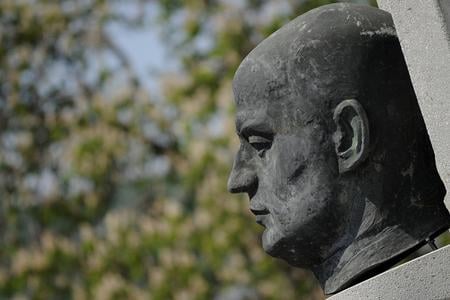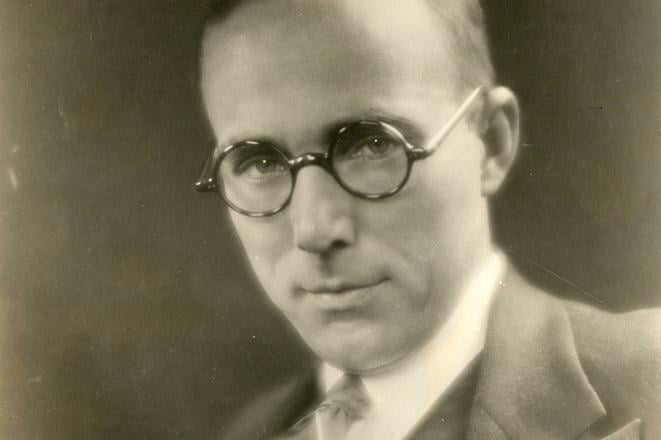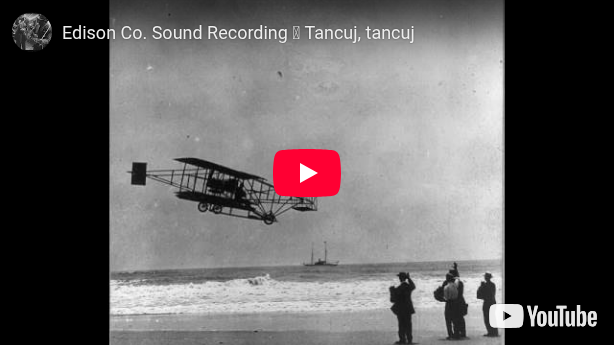You can read this exclusive content thanks to the FALATH & PARTNERS law firm, which assists American people with Slovak roots in obtaining Slovak citizenship and reconnecting them with the land of their ancestors.
When Alois Havrilla, then a four-year-old boy from eastern Slovakia, came to the US, he did not speak a single word in English. In fact, it took him quite some time to actually start speaking in the language, since he attended a school that had classes in Slovak for the first few years.
Nevertheless, Havrilla worked his way up from a newcomer to a noted radio announcer. In fact, in 1935 he won the American Academy of Arts and Letters's gold medal for diction awards - again, as someone who could not speak English for several of his formative years.
In other words, America loved his voice.

Did not understand words, but loved the music
Alois Havrilla was born in Prešov, eastern Slovakia, on July 6, 1891. Not much is known about his life in his country of origin before coming with his family to the US.
His father and respected pharmacist, Ján Havrilla, had already been to America in the 1880s, settling in the Slovak community in the town of Bridgeport, Connecticut. However, without knowing the language, he had trouble finding a job. Despite being short on money, it is said that he refused to produce alcohol illegally so that he would not get into trouble.
Nevertheless, he decided to return to Slovakia and convince his family to come to the US. And so they did, boarding a ship in Hamburg, Germany, that headed to New York.
It was in Bridgeport that Alois Havrilla received his primary education, attending a school with classes in Slovak. He could say his first English word at the age of five. Around that time he would sing Slovak folk songs at churches, which eventually lead to him being discovered by John Baker, a choir director at Bridgeport Trinity Church. Havrilla had an alto voice with a range of three octaves, surprising among boys. His voice later changed to baritone.
Baker not only gave him voice lessons, he gave him a place in the church choir, and also taught him speech and English. Havrilla traced his diction, for which he would later be commended, back to Baker. Havrilla also said that at the beginning he did not understand the English words he was singing, but loved the music.

Making a name for himself
When he was 13, Havrilla became a civil engineer's apprentice with a New England railroad. Most of his time was spent on his studies, with singing activities confined only to the choir.
Interestingly, when the US entered World War I, Havrilla attempted to enlist, but was rejected because of defective eyesight. He was eventually drafted again, but after 13 days in the service was rejected again and returned to civil engineering.
That changed in 1923. He started studying at New York University and later obtained a teaching position in the public schools of New Jersey and became a professional vocalist. He also performed as a soloist at the famous Carnegie Hall. It was during this engagement that he met Graham McNamee, who pointed him to radio.
After Havrilla finished his studies, he joined the announcers staff at WEAF, a commercial radio station in New York City. At the time WEAF was the flagship of the NBC Radio Network, the first national network in the US.
In addition to WEAF, Havrilla was employed as announcer, narrator and commentator at various times by several other New York radio stations-WJZ, WABC, WOR. According to the University of Maryland archives, over the span of his career Havrilla announced and sang on more than 100 programmes for NBC. The types of programmes he announced ranged from comedy programmes to dramas, informational programmes, musical programmes-including those in which he taught music over the air-and quiz shows. He also narrated newsreels and travelogues, lent his voice to several characters in radio plays, and directed a series on King Kong.
In 1946, Havrilla joined WPAT in Paterson, New Jersey and three years later transferred to WNJR in Neward, New Jersey.
No one saw him eat
The biggest recognition of his work was probably the diction medal given annually by the American Academy of Arts and Letters. According to the New York Times, the award is made "on the basis of pronunciation, articulation, tone quality, accent and cultural effect".
Even before he won the medal, The Bergen Evening Record newspaper ran a story about him, calling him "the radio announcer whose diction today is the envy of less-gifted mike men whose birth and breeding gave them even a better start". Curiously, according to the newspaper, Havrilla would "talk like a blue streak" before a microphone; otherwise, he was a quiet person "who never has very much to say and says it in the fewest possible words".
Havrilla's NBC colleague George Ansbro shared a titbit about his time at the radio network. According to him, Havrilla kept a bottle of Scotch in his locker at all times "for that moment when he just plain felt like a nip". Havrilla also would not frequent bars or cocktail lounges, or even other places where the NBC staff congregated.
Here's the most interesting part: Ansbro said that no one knew where Havrilla ate lunch or dinner and no one ever saw him eating in their lounge.
Havrilla stayed true to his work in radio until his death in 1952. He never returned to his hometown, although according to his wife he very much longed for it. His Slovak listeners sometimes sent him postcards from Prešov, which probably meant very much to him.
Spectacular Slovakia travel guides
A helping hand in the heart of Europe thanks to our Slovakia travel guide with more than 1,000 photos and hundred of tourist spots.
Our detailed travel guide to the Tatras introduces you to the whole region around the Tatra mountains, including attractions on the Polish side.
Lost in Bratislava? Impossible with our City Guide!
See some selected travel articles, podcasts, and traveller info as well as other guides dedicated to Nitra, Trenčín Region, Trnava Region and Žilina Region.




